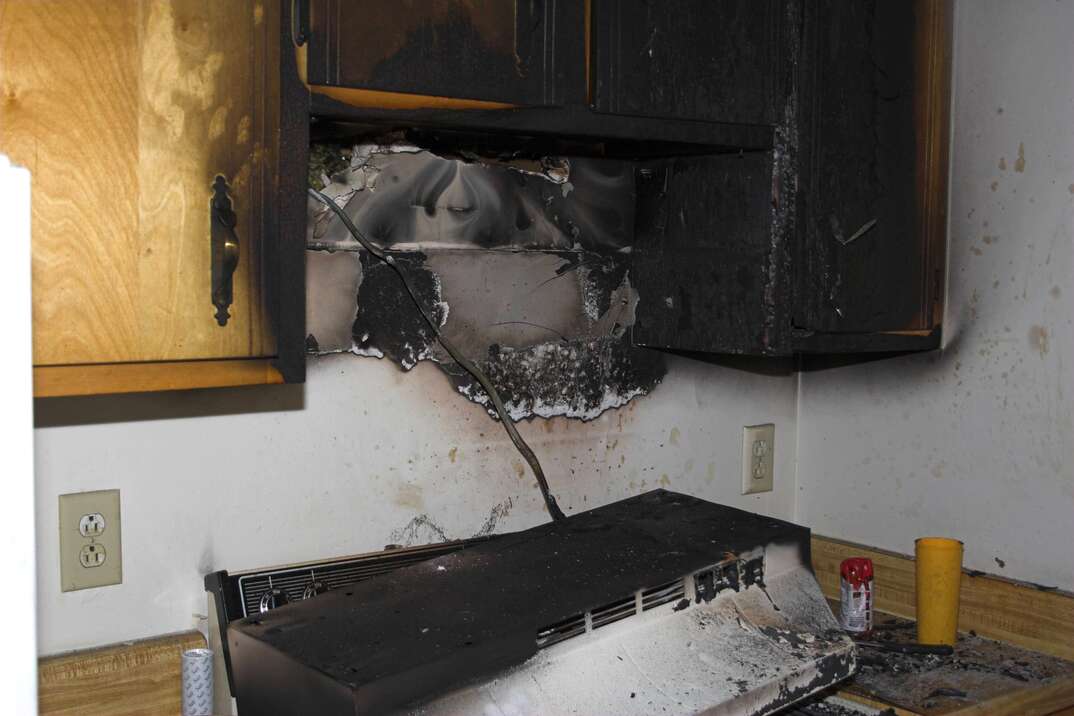How to Prevent Electrical Fires

If you're like most people, you have appliances and electronic devices plugged in at all times. Although these items make life much easier, they also contribute to an increased risk of electrical fires.
Fortunately, there are many steps you can take to protect your home and your loved ones against this type of danger.
What Causes Electrical Fires?
Overloaded outlets are one of the most common causes of electrical fires, as they put extra stress on a home's electrical system. This type of fire usually occurs when you plug in too many items, especially if those items have high power demands. Clothes dryers, portable heaters and air conditioners are often implicated in residential electrical fires.
Some fires occur due to electrical malfunctions, causing flames to spread quickly. For example, if an electrical appliance comes into contact with water, it could short-circuit. This causes an excessive amount of electrical current to flow, increasing the risk of a fire.
You also need to be aware of the hazards associated with lighting fixtures, space heaters, extension cords and surge protectors. Here's how each item contributes to electrical fires.
- Lighting fixtures: If a light fixture isn't wired correctly, it may produce too much heat, increasing the risk of a fire. Some fires start because homeowners use paper shades or install bulbs that have a higher wattage than recommended for a fixture.
- Space heaters: Space heaters may malfunction due to faulty wiring and other manufacturing defects. They can also ignite furniture, curtains and other nearby items.
- Extension cords: It's best to plug each appliance directly into an electrical outlet. If you leave an extension cord plugged in for long periods of time, the cord may start an electrical fire.
- Surge protector: Faulty surge protectors produce an excessive amount of heat, increasing the risk of fires. It's also unsafe to plug multiple surge protectors into each other, a practice known as piggybacking.
If you live in an older home, pay attention to signs of faulty electrical wiring and light switches, as both problems increase the risk of electrical fires.
One of the best ways to prevent electrical fires is to avoid overloading your outlets. If you have several major appliances in the same room, consider installing additional receptacles rather than connecting multiple surge protectors. Extension cords are only for temporary use, such as when you're using a power drill with a cord that doesn't quite reach the nearest outlet. To prevent electrical fires, avoid using extension cords for everyday appliances.
Another easy way to prevent electrical fires is to inspect appliances and electronics carefully for signs of damage. If you notice fraying, stop using the device until you replace the faulty cord. Here are a few additional tips for preventing electrical fires in your home:
- Use outlet covers to prevent young children from inserting items into your electrical receptacles.
- Don't use light bulbs that have a higher wattage than recommended by the manufacturer of each light fixture.
- Avoid forcing 3-pronged plugs into 2-pronged outlets.
- Replace loose wall outlets.
- Have a professional inspect your electrical system every 10 years. An experienced electrician can spot wiring problems and fix them before they cause an electrical fire.
- Use space heaters only when absolutely necessary, such as when a power outage prevents you from using your heating system.
- Replace old appliances if they start making noises or showing other signs of electrical problems.
More Related Articles
- How Do I Tell If an Electrical Issue Is Serious?
- Can One Bad Outlet Affect Others?
- How to Reset a GFCI Outlet
- What’s in My Electrician’s Van?
- 7 Ways to Save on Your Electric Bill
How Do You Stop an Electrical Fire?
It's possible for an electrical fire to start even if you take all the steps outlined above. If it does, you need to know how to respond. The first step is to call your local emergency services telephone number. While first responders are on their way, use a Class C fire extinguisher to try to put out the flames. If you don't have a fire extinguisher on hand, throw some baking soda on the fire. Baking soda pushes oxygen away from the flames, which may help prevent them from spreading.
If the fire continues to grow, shut off the main power source to your home and evacuate immediately. Only turn off the power source if you can reach it safely. Otherwise, evacuate right away and wait for emergency personnel to arrive.
Focus on Fire Safety
If you live with other people, make sure everyone knows how to evacuate your home in the event of a fire or other emergency. Taking a few preventive measures may save you the heartache of losing your prized possessions and the hassle of paying to hire a fire remediation service or move into a new home.
Elocal Editorial Content is for educational and entertainment purposes only. Editorial Content should not be used as a substitute for advice from a licensed professional in your state reviewing your issue. Systems, equipment, issues and circumstances vary. Follow the manufacturer's safety precautions. The opinions, beliefs and viewpoints expressed by the eLocal Editorial Team and other third-party content providers do not necessarily reflect the opinions, beliefs and viewpoints of eLocal or its affiliate companies. Use of the Blog is subject to the
Website Terms and Conditions.The eLocal Editorial Team operates independently of eLocal USA's marketing and sales decisions.



